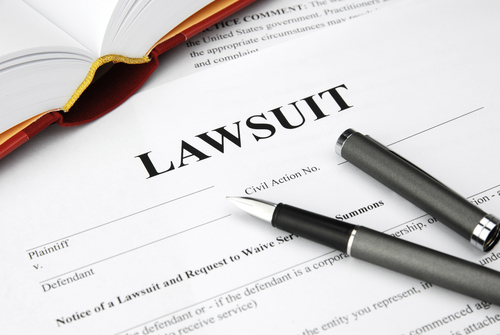
Can an employer sue an employee for compensation?
Rudner Law, Employment / HR Law & Mediation
 Every now and then, we are asked whether an employer can sue an employee (or former employee) for compensation. Sometimes, the question arises due to the negligent or careless actions of the employee — where the employer alleges that they lost money because work was poorly done — but in other cases, it relates to deliberate misconduct, such as theft. Can an employer do more than fire the employee if they discover deliberate misconduct? The short answer: yes, in some cases, an employer can sue an employee for losses suffered at their hands.
Every now and then, we are asked whether an employer can sue an employee (or former employee) for compensation. Sometimes, the question arises due to the negligent or careless actions of the employee — where the employer alleges that they lost money because work was poorly done — but in other cases, it relates to deliberate misconduct, such as theft. Can an employer do more than fire the employee if they discover deliberate misconduct? The short answer: yes, in some cases, an employer can sue an employee for losses suffered at their hands.
In the recent case of M-I Drilling Fluids Canada, Inc. v Cottle, the employee was a senior-level, fiduciary employee. The company had a Code of Ethics which prohibited employees from receiving payments from suppliers, unless they had prior approval. Despite this policy, which he was aware of, Mr. Cottle received kickbacks from MID suppliers over a period of several years.
The company discovered one instance of this behaviour, and issued a written warning which mentioned the possibility of termination if he engaged in further misconduct. However, this apparently did not discourage Mr. Cottle from continuing to accept such payments, to the detriment of the company (since the supplier inflated its costs). Mr. Cottle had a consulting company which he used to invoice the suppliers in question. The evidence was that he issued 117 invoices to a single supplier, and in total collected almost $90,000 in kickbacks.
As is often the case, the arrangement came to light when the employee went on leave and someone else took over his duties. Once that happened, Mr. Cottle was fired.
Interestingly, the story did not end with termination. The company then commenced a legal action to recover Mr. Cottle’s unlawful gains. Allegations included breach of contract, breach of fiduciary duty, civil fraud and conspiracy, and the company sued the companies that paid the kickbacks as well.
Mr. Cottle was unapologetic and unsympathetic. He claimed he did nothing wrong, yet when he was disciplined for one instance, he did not mention that there were actually many others. Further, he did not change his behaviour — he continued to take kickbacks, testifying that he “decided [he] was going to continue doing things the same way [he] had been doing them and accept the consequences.”
Interestingly, Mr. Cottle argued that the company was limited to dismissing him and had no other legal remedy available to it. In support of this argument, he pointed out that the warning he received in 2012 warned that he would be dismissed if he failed to abide by the Code in the future, but did not warn that he would be sued. He therefore argued that the company was estopped from advancing its claim.
The Court was not swayed either factually, legally, or in equity, and pointed out that the defence of estoppel required the party seeking to enforce it to come with “clean hands”.
The Court found that
- “Mr. Cottle deliberately and knowingly put himself in a position where his interests conflicted with those of MID. Further, he continued with his course of conduct long after he could have been left in no doubt that it was wrongful. Therefore, I find that Mr. Cottle breached his common law employment duties.”
- Mr. Cottle was a “key employee” with fiduciary duties to act in M-I’s best interests, and that he breached his duties by accepting the kickbacks in furtherance of his interests while compromising those of the company.
- There was an agreement that Mr. Cottle would approve purchase orders from certain suppliers at inflated prices, in exchange for undisclosed payments.
- The torts of civil fraud and conspiracy were made out.
The Court ordered damages based upon disgorgement of the profits Cottle obtained via the payments, being $77,751.98. Furthermore, the Court awarded $12,000 in punitive damages.
This case does not mean that employers can sue employees for any losses that arise out of their employment. It will be difficult, if not impossible, to obtain compensation for negligent work, or mistakes. However, where there is deliberate misconduct like in this case, remedies are available to the employer beyond dismissal for cause.
Table of Contents
Compliance Made Easy®


